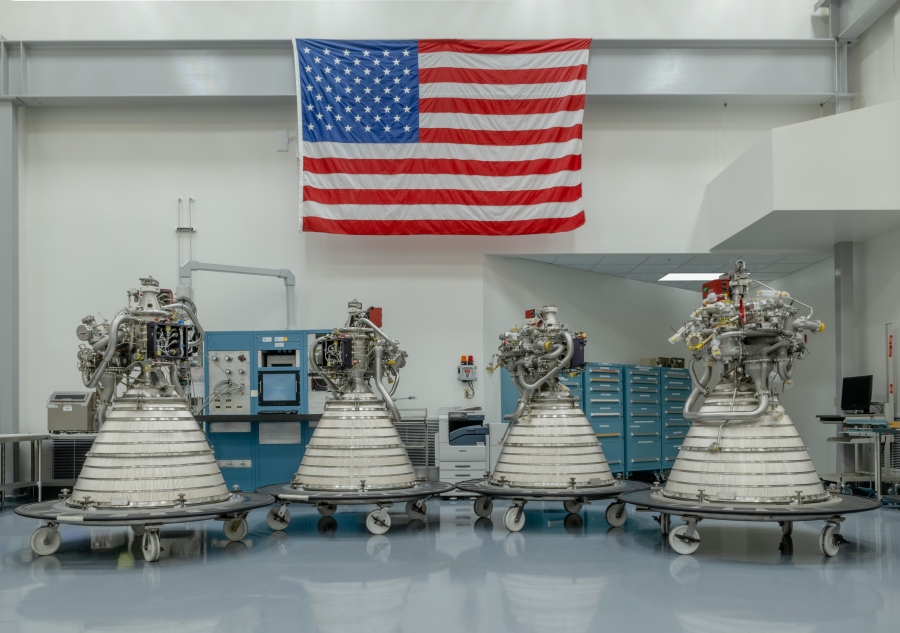Being flooded with short interest isn't an ideal situation for any company's stock.But the correlation between high short-interest and fall in stock price isn't well established. A case in point will be this defense sector company. GenCorp (GY +0.00%) is inching up toward a multi-year high. Though 40% of this company's floating shares are short, it hasn't stopped this company's stock from giving a high return in the past year.
The stock closed at $17.30 in trading on Tuesday after touching its 52-week high in March. Can the bears with huge short interest halt its move up? What are the fundamental triggers driving this stock?.
A monopoly
The company supplies propulsion systems and several critical components for defense equipment manufacturers and NASA. In 2013, it acquired its competitor Rocketdyne, an acquisition that went through after the Pentagon intervened on GenCorp's behalf to push aside an objection by the Federal Trade Commission. The concern raised by the FTC was regarding a monopoly in liquid diverts and attitude control systems, a specialty area of the missile market. But the monopoly was granted eventually.
A bonus card
News reports about GenCorp's huge landholdings and its low valuation recorded in the company books also may have helped in its stock price rise. At least 6,000 acres of land is available for the firm to develop and sell A conservative estimate puts the value of the landholdings to be around $400 million.
If the company is successful in selling its lands, it will result in a balance sheet with much reduced debt, and the earnings of the company would not be dragged by interest payment. In the quarter ended November 2013, the company had paid $12.5 million as interest on an operating income of only $14.1 million. Considering this, you could see that net earning available to the shareholders will drastically increase if the debt is paid back.
A game changer
What might have been missed by many investors is a news report in which GenCorp President Warren Boley said that its new solar energy-based propulsion could bring in many billion of dollars in revenue; you should read this in conjunction with the fact that the company's annual revenue is only a billion dollars. Clearly, a few more billion from a single initiative could be a big bonanza for its investors.
Short confusion
Having 40% of floating shares as short is quite intriguing. Is it a simple case of miscalculation by the shorts or is the company going into trouble?
If the shorts originated on the basis of reduced defense and NASA spending, then many companies in this sector could have seen huge short interest. But that is not the case. Lockheed Martin (LMT 1.55%) and Raytheon (RTN +0.00%) are not facing such short pressure.
Lockheed Martin has a short interest of 2.2% and Raytheon has a short interest of 1.4% of shares float. Even though the cut in defense spending may be a reality, it is not a sufficient reason for the GenCorp stock to attract such heavy short interest. The company enjoys long-term contracts with its clients and its niche segment of operation is an uncontested market space. Its major customers are United Launch Alliance, Lockheed Martin, Raytheon and NASA. As per a Fool.com article, it even has a potential huge new order win. Also, defense spending is not expected to be curtailed in the areas of GenCorp's specialization.
The chance exists that the sale of its landholdings may not materialize as planned. Also, there is always risk that any of its proposed revenue streams may develop unforeseen trouble. You can count it among the possible risks of investing in this company's stock, but not a reason to short the stock.
What now?
Shorts may have a strong reason to stand behind such huge position against a visible uptrend in this stock. But if the stock successfully moves to new highs, they will be in trouble for sure. Investors do have multiple incentives to consider buying this stock. Real estate, monopoly in a niche segment, and the promises of a huge jump in revenue are strong reasons for triggering a big move up for this stock.







